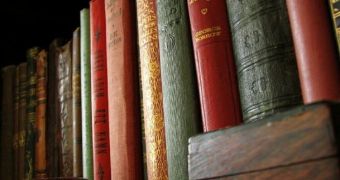Many of us have old, treasured books that have been in our families for generations. These records of events that were, either historical or literary, are extremely important to some, who would love nothing more than to see their old books restored to their former glory. Now, scientists have discovered a new way in which the paper can be, if not restored, then at least preserved. They argue that the key lies within the smell that old pages leave behind as they degrade, a smell most of us are already familiar with.
The science group says in a new report, published in the latest issue of the scientific journal Analytical Chemistry, that the compounds that release this smell are in fact the ones responsible for the books' decaying. As long as they are kept inside the paper, the researchers believe, there would be no reason for the prized valuables to degrade. Old books and historical documents could therefore be better preserved, and for longer as well, the BBC News reports.
The international research effort that came to this conclusion was led by Matija Strlic, an expert with the University College London Center for Sustainable Heritage. The group also came up with a brand-new method of detecting which books and documents were mostly at risk, by devising a new “sniff test,” which analyzes the levels of volatile organic compounds over the pages. The scientists argue that this technique could benefit museums, libraries and private collectors significantly, in their attempt to keep paper out of the reach of time.
Strlic describes the “old book smell” as “a combination of grassy notes with a tang of acids and a hint of vanilla over an underlying mustiness. This unmistakable smell is as much part of the book as its contents.” The expert also mentions how he came up with the idea for the new device: “I often noticed that conservators smelled paper during their assessment. I thought, if there was a way we could smell paper and tell how degraded it is from the compounds it emits, that would be great,” he reveals.
Not all books are the same, and the mix of compounds each of them eliminates is dependent on many factors, including “on the original composition of the... paper substrate, applied media, and binding,” the experts write in the journal entry. Strlic adds that the method could also be used for other artifacts as well, and not necessarily only books.

 14 DAY TRIAL //
14 DAY TRIAL //